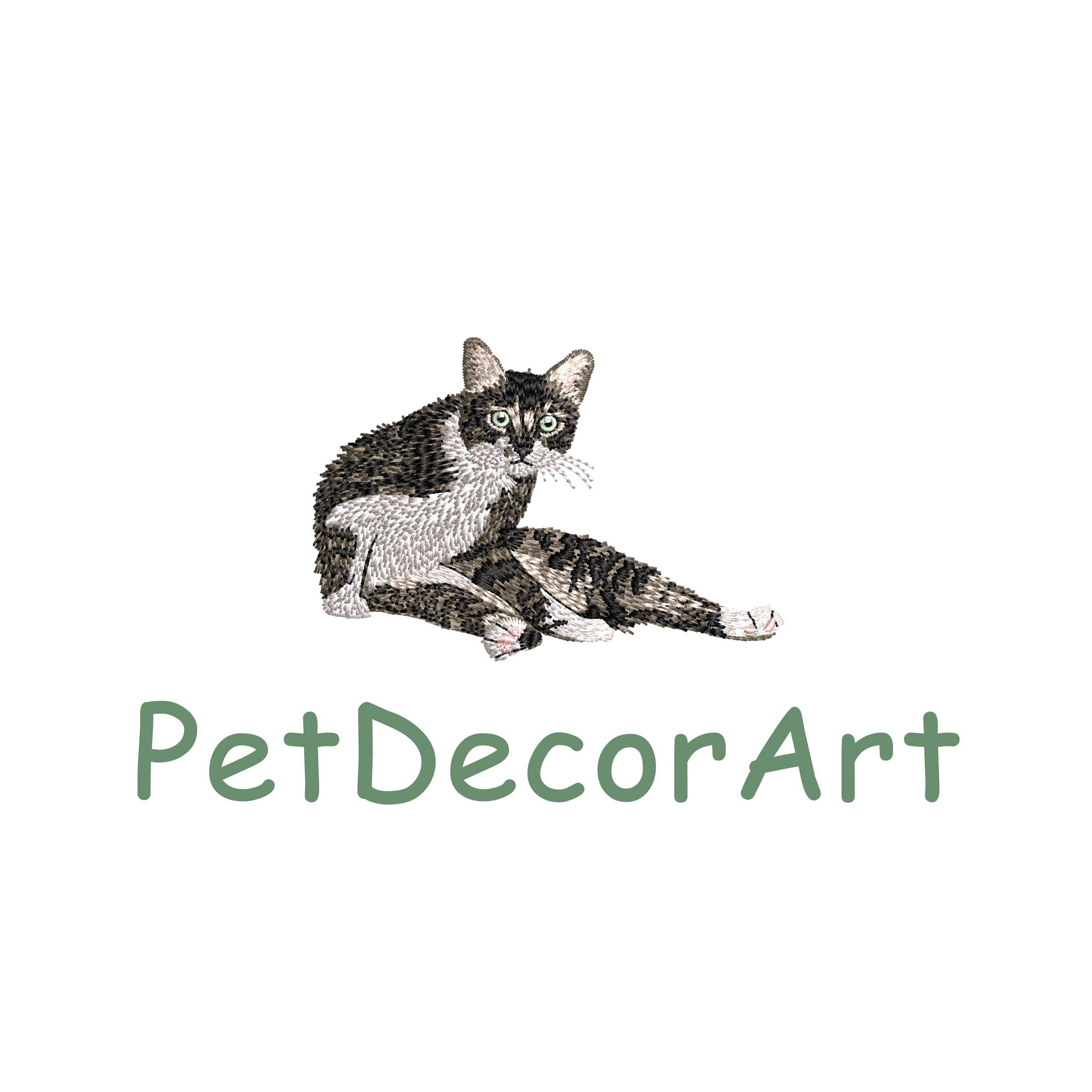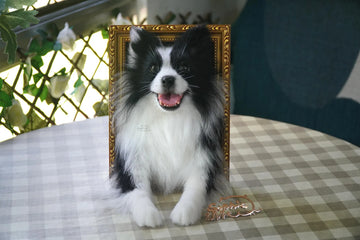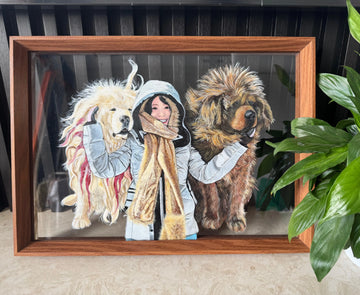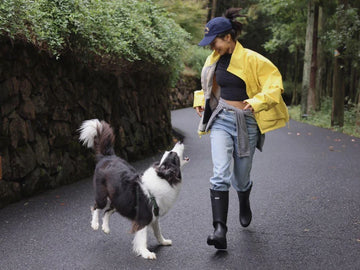Updated: October 2025 · Read time ~18–24 minutes
A wool felt pet is more than a cute keepsake. It’s sculpture, texture, memory, and story—compressed into fibers that hold shape for years when you treat them right. This handbook shows exactly what needle-felted art excels at, what it doesn’t, how long it lasts in real homes, and how to commission a piece that looks like your animal (not a generic breed). We’ll also demystify materials, armatures, surface finishes, and long-term care so you can plan with confidence.
1. Understanding Wool Felt: What the Material Actually Does
2. Popular Forms of Wool Felt Pet Art (and When to Choose Each)
3. Quick Matrix: Size, Display Style, Lead Time & Typical Use
4. What Wool Felt Cannot Do (Important Boundaries)
5. Longevity & Handling: How Long It Lasts in Real Life
6. How to Commission a Look-Alike Wool Felt Pet
7. Care & Cleaning: A Simple, Durable Routine
8. Display, Shipping & Storage: Avoiding Heat, Light & Moths
9. Materials Glossary (Needles, Fibers, Armatures, Finishes)
10. Related Questions (Realistic Eyes, Ashes, 1:1 Scale & More)
11. Conclusion
1) Understanding Wool Felt: What the Material Actually Does
Wool felting works because sheep fibers have microscopic scales. When you push those fibers repeatedly with a barbed needle, the scales interlock; density increases; forms hold. Add directionality and you can “draw” contours: cheekbones, a ridge down the muzzle, the soft fold of a cat’s ear. Unlike sewn plush, needle-felting builds volume from the inside out, so the surface reads like fur, not fabric.
Why wool felt suits portraits
- Micro-blending lets artists mix three or more shades into a single tuft—ideal for tabby and brindle patterns.
- Edge control creates believable eyelids, nostrils, toe beans, and whisker pads without visible seams.
- Repairable: a scuff can be re-needled or patched; small dents recover with gentle steaming and reshaping.
Where it struggles
- High moisture & abrasion: heavy handling, rain, and rough bags fuzz fibers and flatten details.
- Harsh UV: prolonged sun fades dyestuffs over years; domes and shaded shelves are smarter.
- Chewing: pets (and toddlers) can deform felt quickly; these are art objects, not chew toys.
2) Popular Forms of Wool Felt Pet Art (and When to Choose Each)
Each form solves a different problem: space, durability, visibility, or gifting. Choose by context first, then detail level.
Mini Keychain / Bag charm(Regular price $59.90)
A compact wool-felt portrait crafted as a head-only mini or chibi-style figure with metal hardware for attachment. Designed for daily carry with gentle use. Each piece is felted densely to maintain structure and expression, and optional surface protection can be added to reduce pilling over time.
Great for: everyday carry, casual gifting, personal accessories
Suggested display: attached to handbags, backpacks, or key rings
Handling: light surface contact only; avoid tight pockets and moisture

Brooch / Pin(Regular price $99.99)
A flat-back felt portrait with a secure locking pin or magnetic backing. Ideal for wearable art without bulk. Lightweight and expressive, it highlights facial details while remaining practical for clothing or fabric display.
Great for: wearable tributes, minimalist portraits, gift-giving
Suggested display: jacket lapels, tote bags, pinboards
Handling: store in soft case; avoid friction against rough fabrics

Full-Body Sculpture(Regular price $499.99-$1,999.99)
A realistic 3D wool-felt sculpture built from a shaped inner core and optional wire armature. Captures anatomy, posture, and fur flow for high likeness. Sculpted proportions and customized finishing details bring each pet's personality to life through expressive body language.
Great for: collectors, memorial pieces, premium home display
Suggested display: enclosed display dome or glass cabinet
Handling: minimal touch; support base when moving

Framed Relief Portrait(Regular price $249.99-$1,199.99)
A three-dimensional wool-felt bust set inside a wooden shadow frame. This design protects the artwork from dust and UV exposure while offering a dramatic art-gallery presentation. Likeness is enhanced by controlling the viewing angle, making it ideal for portrait-style tribute pieces.
Great for: memorials, gallery walls, elegant home decor
Suggested display: wall mount or mantle frame stand
Handling: keep framed; do not press glass directly against wool

Car Hanging Ornament(Regular price $249.99-$1,199.99)
A lightweight wool-felt pet head or mini body designed for rearview mirror display. Custom-built to reflect your pet’s markings and charm, this sentimental piece travels with you. Best used with seasonal rotation and basic care to preserve wool texture and color.
Great for: road trip keepsakes, sentimental travelers, memory pieces
Suggested display: rearview mirror (in shade), display hook
Handling: avoid prolonged sun exposure and high heat inside vehicles

Handmade Felted Hamster(Regular price$179.99)
Lifelike 3D needle-felted hamster or ferret replicas handcrafted from your photos. Each piece captures the animal's natural body posture, ear shape, tail style, and signature expression—whether it's a curious upright pose or a cozy ball-shaped rest. Built with a dense wool core for structure and detailed surface felting for realistic fur transitions. Optional whisker detailing and miniature prop accessories available for personality customization.
Great for: exotic pet lovers, pocket-sized companions, tribute/memorial pieces
Suggested display: acrylic dust box or bookshelf micro-diorama
Handling: light-touch only; avoid moisture and direct sunlight

Custom Birds Sculpture(Regular price$69.99-$449.99)
A finely detailed wool-felt bird sculpture custom-made to match your bird's plumage, feather layering, and eye expression. Every piece uses micro-felting and feather-gradient techniques to reproduce subtle transitions in wing and tail colors. Available for parrots, cockatiels, lovebirds, macaws, budgies, finches, and custom species. Optional perch stand or natural wooden mount included.
Great for: realistic avian portraits, memorial keepsakes, naturalistic decor
Suggested display: enclosed glass dome or perch stand on a mantle/table
Handling: minimal handling; use soft air-blower to clean

*Lead time varies by complexity, queue, and proof rounds. Pattern-heavy coats (tortoiseshell, brindle, multi-color parrots) typically require additional blending time.
4) What Wool Felt Cannot Do (Important Boundaries)
- Not a chew-safe pet toy. Wool fibers can be ingested; treat as art.
- Not machine-washable. Water + agitation = deformation and color run.
- Not UV-proof. Direct sun fades over years; rotate or case your piece.
- Not indestructible on the go. Purse interiors, zippers, and key rings abrade. Expect patina on carried charms.
- Not for children under 3. Small parts (eyes, pins) may detach; display out of reach.
5) Longevity & Handling: How Long It Lasts in Real Life
Longevity depends on density (how hard the core is felted), exposure (dust, UV, oils), and handling (static display vs. daily carry). A dense, framed bust under a dome can look new after a decade; a keychain develops soft pilling within months—normal and treatable.
| Scenario | Exposure | What to Expect | Simple Prevention |
|---|---|---|---|
| Shelf + glass dome | Low dust, low UV | Colors stable, form crisp for years | Quarterly dusting; rotate 180° each season |
| Open shelf near window | Light dust, moderate UV | Gradual fading on sun-facing side | Move 1–2 ft back; add UV film or sheer curtain |
| Daily keychain | Abrasion, oils | Soft pilling, flattened edges | Matte sealant, weekly de-pilling, avoid tight pockets |
| Car ornament (summer) | Heat, UV | Color shift; fiber relaxation | Seasonal rotation; park shaded; remove during heat waves |
6) How to Commission a Look-Alike Wool Felt Pet
Photo kit that makes all the difference
- Angles: front, 45°, side profile, top of head, tail carriage, paw pads.
- Fur pattern: close-ups of stripes, cheek patches, throat/underbelly, ear backs.
- Eyes & nose: one indoor natural-light shot (for color) + one bright flash (for shape).
- Personality tell: the “signature” look—head tilt, tongue tip, eyebrow lift.
Design choices you’ll be asked to make
- Scale & pose: sitting, sphinx, loaf, play bow, or custom stance from a favorite photo.
- Finish: glass or resin eyes; polymer-clay nose; whiskers (horsehair or nylon).
- Mounting: free-standing, magnet/brooch, keychain hardware, framed shadowbox.
- Inscription: name/date plaque, or engraved tag on the frame’s back.
Proofs, revisions, and timing
Most makers share a midpoint proof before surface detailing (eyelids, whiskers). This is the best time to tweak ear height, muzzle width, or color balance. Add at least 1–2 extra weeks if you need multiple revision rounds or if your piece uses complex brindle/tortoiseshell mixes.
7) Care & Cleaning: A Simple, Durable Routine
| Frequency | Action | How | Why |
|---|---|---|---|
| Weekly | Dusting | Soft makeup brush or hand blower; no vacuum | Prevents embedded grime and fiber matting |
| Monthly | De-pilling | Use a very gentle fabric shaver on edges only; finish by hand | Restores crisp silhouettes on ears and cheeks |
| Seasonal | Rotation | Turn the piece 180° to balance light exposure | Reduces one-sided fading |
| Yearly | Moth prevention | Refresh cedar blocks or sealed sachets nearby | Keeps keratin-loving pests uninterested |
If a corner compresses, steam lightly from a distance, coax back with fingers, then let cool fully before moving. For stains, spot treat with barely damp cloth and blot dry; avoid soaps and saturating water.
8) Display, Shipping & Storage: Avoiding Heat, Light & Moths
Best display
- North- or east-facing room; indirect light.
- Glass dome or shadowbox for high-traffic shelves.
- Micro-plinths lift small heads for better sightlines.
Shipping considerations
- Ask for rigid mailers or double boxes around domes.
- Support ears and muzzles with soft tissue, not tape.
- Let the piece acclimate 12–24 hours before unboxing in winter.
Storage
- Cool, dry cabinet; avoid attics/garages (heat + humidity).
- Breathable dust cover beats airtight plastic for long terms.
- Add labeled photo so you can identify pieces without handling.
9) Materials Glossary (Needles, Fibers, Armatures, Finishes)
- Core wool: undyed, springy fibers that build bulk quickly. Dense core = stable shape.
- Detail wool: fine Merino or blended tops for smooth surface transitions.
-
Needles: sizes vary;
36 star/38 starfor shaping,40 trianglefor surface,reverseto tease fuzz for fur-like edges. - Armature: stainless or aluminum wire for legs/tails; wrapped in wool tape to prevent slippage.
- Eyes: glass for depth; resin for weight sensitivity; hand-painted irises match flecks.
- Whiskers: nylon/horsehair set into micro-channels with archival glue.
- Sealants: matte textile sprays add abrasion resistance; test on swatches to avoid darkening.
10) Related Questions
How realistic can a wool felt portrait get?
Very—if you provide high-resolution photos and approve a mid-stage proof. Glass eyes, eyelid sculpting, and carefully blended cheeks elevate realism. Patterned coats (brindle, tortie) need extra blending time.
Can you work from one blurry photo?
Yes, but likeness suffers. Add supporting shots of similar dogs/cats from the same breed mix to infer skull shape and ear set, or choose a stylized chibi approach that prioritizes attitude over anatomy.
Could ashes or a fur clipping be included?
Many artists can embed a tiny vial behind a plaque or into the frame’s backing. Direct mixing with wool is uncommon because it can affect density and color; discuss discreet placement options.
What about 1:1 life-size?
Possible but time-intensive. Large formats require internal armatures and modular construction (head and body separately finished, then joined). Expect longer lead times and crate-level shipping.
Is a keychain version practical?
Yes, if you accept patina. Request extra-dense felting, minimal protrusions, and a matte sealant. Avoid tight jean pockets; hang from a bag loop instead.
How do I pick between a frame and a free-standing sculpture?
Frames protect from dust/UV and “lock” the viewing angle—great for wall displays and memorials. Free-standing pieces feel more alive from multiple angles, but need domes in busy homes.
What is the usual turnaround?
Simple minis can be done in 1–2 weeks; framed or full-body realism often takes 2–5 weeks plus time for approvals. Holiday seasons book early—reserve a slot 4–8 weeks ahead.
Why choose wool felt over 3D printing or photos?
Texture and warmth. Wool reads as fur in photographs and in hand. It’s also repairable—minor scuffs can be re-needled—whereas plastics scratch and painted finishes chip.
11) Conclusion
A wool felt pet shines when you want emotional accuracy in a compact form: the tilt of an ear, the patch under the eye, the paw curl your family knows by heart. Pick the form for your context, feed the artist strong reference photos, and plan a minimal, steady care routine. Displayed thoughtfully, felt holds its shape and story for years—quiet, tactile, and unmistakably yours.
Note: This guide focuses on fine craft and long-term preservation. Felt pieces are not toys, and are not intended for children under three or for pets.




